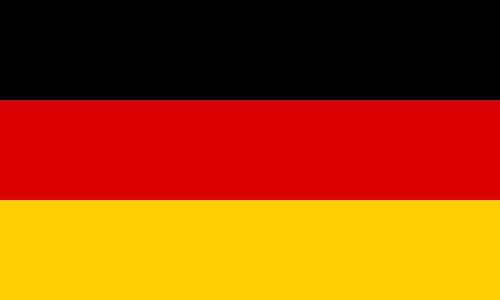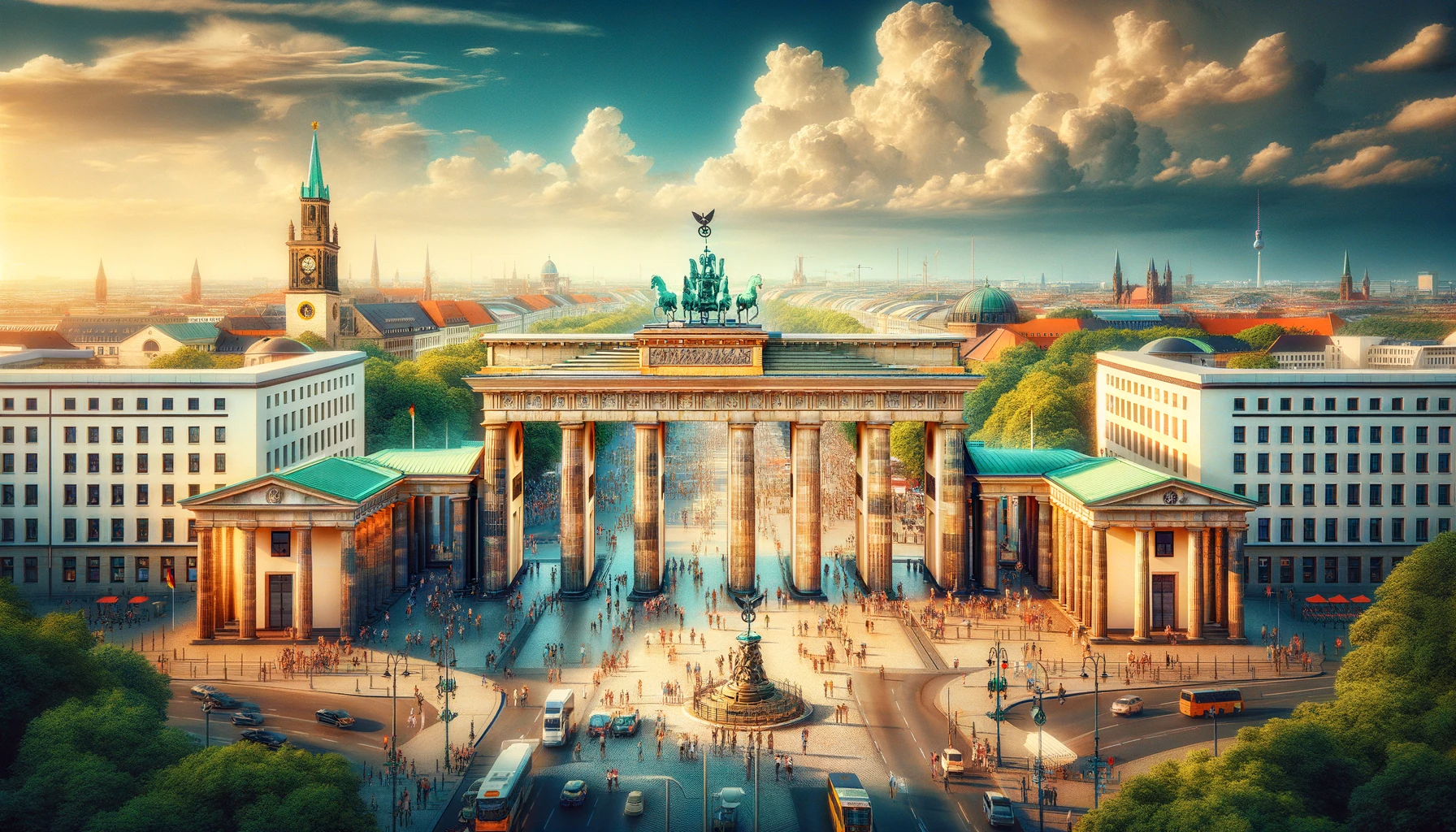Germany, situated in the heart of Europe, is a country rich in history, culture, and natural beauty. Known for its precision engineering and high-quality products, it’s also celebrated for its historical sites like Berlin’s Brandenburg Gate and Munich’s Oktoberfest. Germany’s diverse landscapes range from the Black Forest to the Bavarian Alps, and its commitment to art, philosophy, and music is evident in its vibrant cultural life. This blend of old-world charm and modern innovation makes Germany a compelling destination.
The following days are public holidays in Germany in the year 2024
- New Year’s Day: Monday, 1 January 2024 (National)
- Epiphany: Saturday, 6 January 2024 (BW, BY, ST)
- International Women’s Day: Friday, 8 March 2024 (BE)
- Good Friday: Friday, 29 March 2024 (National)
- Easter Sunday: Sunday, 31 March 2024 (BB)
- Easter Monday: Monday, 1 April 2024 (National)
- Labour Day: Wednesday, 1 May 2024 (National)
- Ascension Day: Thursday, 9 May 2024 (National)
- Whit Sunday: Sunday, 19 May 2024 (BB)
- Whit Monday: Monday, 20 May 2024 (National)
- Corpus Christi: Thursday, 30 May 2024 (BW, BY, HE, NW, RP, SL, SN, TH)
- Assumption Day: Thursday, 15 August 2024 (BY, SL)
- Children’s Day: Friday, 20 September 2024 (TH)
- Day of German Unity: Thursday, 3 October 2024 (National)
- Reformation Day: Thursday, 31 October 2024 (BB, HH, MV, NI, SH, SN, ST, TH)
- All Saints’ Day: Friday, 1 November 2024 (BW, BY, NW, RP, SL)
- Repentance Day: Wednesday, 20 November 2024 (SN)
- Christmas Day: Wednesday, 25 December 2024 (National)
- 2nd Day of Christmas: Thursday, 26 December 2024 (National)
- Please note that some holidays are specific to certain states, so make sure to check the holidays that apply to your location.
The Munich Oktoberfest in Bavaria runs from 21. September till 6. Oktober 2024
Country Profile Germany
- Population: 82.1 million (UN, 2010)
- Capital: Berlin
- Area: 357,027 sq km (137,849 sq miles)
- Internet domain: .de
- International dialling code: +49

History
- Early and Medieval History: Inhabited since ancient times, Germany was a collection of various states and principalities through the Middle Ages.
- Unification: Became a unified nation-state in 1871 under Prussian leadership.
- World Wars: Played central roles in both World War I and World War II. The defeat in WWII led to its division into East and West Germany.
- Reunification: The fall of the Berlin Wall in 1989 paved the way for the reunification of East and West Germany in 1990.
Geography
- Location and Terrain: Located in Central Europe, sharing borders with nine countries. Its landscape varies from the North Sea and Baltic coasts to the mountain ranges in the south.
- Rivers and Forests: Notable for major rivers like the Rhine, Danube, and Elbe, and extensive forests, such as the Black Forest and the Bavarian Forest.
- Climate: Generally a temperate seasonal climate.
Culture
- Language: German is the official language, with various regional dialects.
- Arts and Music: Rich cultural heritage with global influence, home to renowned composers like Bach, Beethoven, and Mozart, and writers such as Goethe and Schiller.
- Festivals: Famous for its Christmas markets and Oktoberfest, the world’s largest Volksfest (beer festival and travelling funfair).
- Cuisine: Known for dishes like Bratwurst, Sauerkraut, Pretzels, and a strong beer culture.
Economy
- Industry and Innovation: One of the world’s largest and most advanced economies, leading in several industrial and technological sectors.
- Export Power: Major exporter of vehicles, machinery, chemicals, and household equipment. Known for its high-quality engineering and manufacturing, particularly in the automotive sector with brands like BMW, Volkswagen, and Mercedes-Benz.
- Economic Challenges: Faces challenges like an aging population, the need for energy transition, and sustaining its manufacturing base in a digital economy.

Politics
- Government: A federal parliamentary republic. The Chancellor is the head of government, and there is a federal president as head of state.
- Political Landscape: Known for its multi-party system with a focus on coalition governments. Major parties include the Christian Democratic Union (CDU), Social Democratic Party (SDP), and The Greens.
- European Integration: A leading member of the European Union and strong advocate for European integration and cooperation.
Society
- Population: One of the most populous countries in the European Union. It has a diverse population, with a significant number of immigrants.
- Social Systems: Strong social welfare systems, including healthcare, unemployment benefits, and education.
- Cultural Integration: Ongoing efforts to integrate immigrants into society, alongside debates on multiculturalism and social cohesion.
Science and Technology
- Innovation and Research: A global leader in science and technology, with significant investments in research and development. Home to world-renowned universities and research institutes.
- Technological Industries: Strong in sectors like automotive, mechanical engineering, chemical, and energy.
Arts and Literature
- Literary Contributions: A rich literary history with influential authors like Thomas Mann, Hermann Hesse, and contemporary writers like Günter Grass.
- Art and Architecture: Known for contributions to art history, particularly during the Bauhaus movement, and significant architectural landmarks.
Sports
- Football Dominance: Football is a major part of German culture, with the country having a successful national team and renowned clubs like Bayern Munich and Borussia Dortmund.
- Other Sports: Also strong in sports like Formula One, tennis, and athletics.
International Relations
- Global Role: Active in international politics, known for its commitment to democratic values, human rights, and environmental sustainability.
- Foreign Policy: Focuses on peacekeeping, global economic stability, and development aid.
Challenges and Prospects
- Sustainable Development: Balancing economic growth with environmental sustainability and transitioning to renewable energy.
- Demographic Changes: Managing an aging population and workforce while integrating immigrants into the economy and society.
In summary, Germany is a nation with a profound historical impact, a strong economy, and a rich cultural heritage. It is a key player in European and global affairs, facing modern challenges with a commitment to innovation, sustainability, and social welfare. Germany continues to play a pivotal role in shaping the political, economic, and cultural landscape of Europe and the world.
Public Holidays Europe (EMEA)

